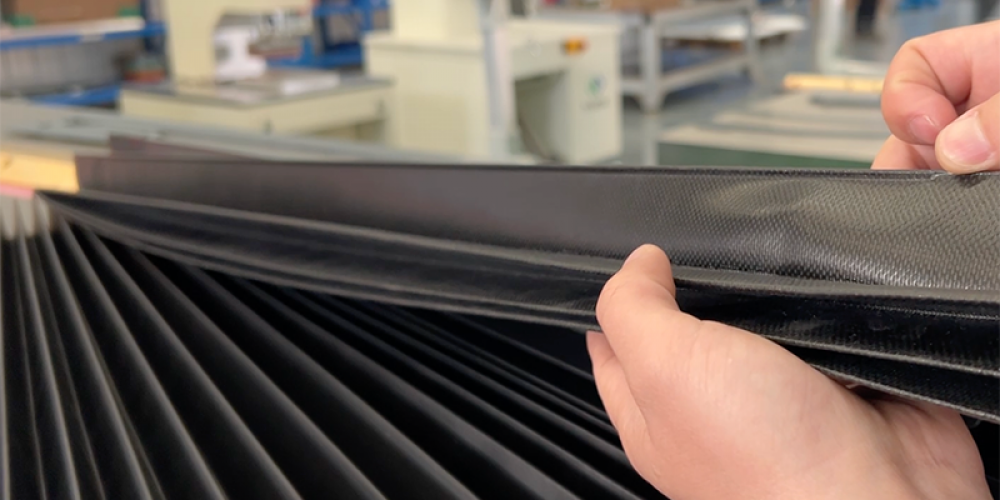Flexible Telescopic Protective Cover, formally known as the Flexible Bellows-style Machine Tool Guideway Protective Cover (commonly called "Leather Bellows" or "Pi Laohu" in Chinese), is a type of protective cover for machinery. It has a wide range of applications, including but not limited to the following scenarios:
1. Mechanical Manufacturing Industry
- Machine Tool Protection: Flexible telescopic covers can be applied to various machine tools, such as machining centers, lathes, and punching machines, to protect guideways and other critical components. They prevent contaminants like oil, coolant, and metal chips from entering, ensuring smooth operation and extending equipment lifespan.
- Automation Equipment: On automated production lines, these covers shield robotic arms, conveyor belts, and other automation equipment from dust and debris, maintaining operational reliability.
2. Food Processing Industry
Production Line Protection: During food processing, flexible covers protect equipment like ovens and mixers from dust and pollutants, ensuring hygiene and food safety compliance.
3. Electronics Manufacturing Industry
Electronic Device Protection: In electronics manufacturing, these covers safeguard circuit boards, wire harnesses, and cables from external contaminants (e.g., dust and static electricity), preserving the quality of electronic components.
4. Automotive Manufacturing Industry
- Production Equipment Protection: On automotive assembly lines, flexible covers shield welding, painting, and drilling equipment from sparks, fumes, and debris, ensuring workspace cleanliness and worker safety.
- Lifting Platform Protection: These covers are widely used on lifting platforms in automotive assembly lines to accommodate height adjustments and ensure stable operation.
5. Other Industries
- Stone and Glass Machinery: Flexible covers protect guideways and moving parts from dust and debris in stone-cutting and glass-processing equipment.
- Door/Window Machinery and Injection Molding Machines: They ensure stability and safety by shielding critical components from contamination.
- Material Handling and Automated Warehouses: In these settings, the covers protect transmission systems and key components from contaminants, reducing the risk of malfunctions.
